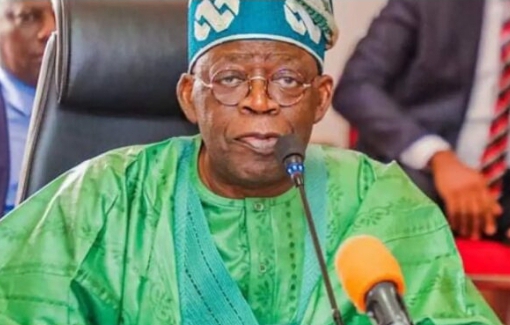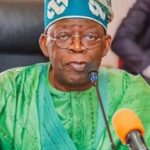By Idowu Ephraim Faleye
President Bola Ahmed Tinubu has never hidden his political philosophy from the very beginning of his political career. He had declared himself a progressive and has consistently maintained that position. He has never pretended to be a cautious politician who defends the status quo. His entire approach to governance has been to introduce reforms, however radical, that break away from old traditions and attempt to rebuild weak structures. This explains why his current style as president reflects the same principles he practiced as governor of Lagos State.
In Lagos, Tinubu refused to follow the conservative path that had dominated Nigerian politics. Instead of waiting for federal allocations, he built an independent tax base through aggressive reforms in revenue collection. Instead of leaving power centralized the way he met it, he created Local Council Development Areas that brought governance closer to the people. These moves were resisted by the federal government under the conservative President Obasanjo, yet Tinubu stood firm. The outcomes speak for themselves. Today Lagos is financially stable, self-reliant, and better governed than most states in Nigeria. These reforms were not accidental. They were deliberate choices rooted in progressivism.
Read Also: Understanding the Historical Roots of Insecurity in Nigeria
Conservatism in Nigerian politics has generally meant keeping things as they were, preserving the dominance of entrenched elites, and making changes slowly if at all. It is cautious, incremental, and deeply tied to maintaining balance among powerful groups. All the president in Nigeria before Tinubu mostly leaned towards this conservative outlook. They avoided radical reforms even when the country desperately needed them. This is why issues such as fuel subsidy and multiple exchange rates remained unresolved for decades.
Tinubu, by contrast, approached leadership with a different set of priorities. Progressives do not delay difficult decisions. They believe reforms should be made boldly, even if they are painful in the short term. This is why Tinubu announced the removal of fuel subsidy on his very first day in office. It was an extraordinary move considering how politically sensitive subsidy had become. Yet he considered it unavoidable because the subsidy regime had drained public finances for ages without creating long-term benefits. Similarly, he unified Nigeria’s multiple foreign exchange rates, another decision avoided by previous conservative governments. These choices were disruptive, but they were consistent with his progressive ideological identity.
The opposition to Tinubu’s reforms must therefore be understood in ideological terms. Those who criticize his government argue that the reforms are too drastic and that changes should be introduced gradually. Their position reflects conservative thinking, which prioritizes stability over disruption, even when disruption is necessary for future growth. Tinubu represents the progressive position, which insists that deep-rooted problems require decisive action, not half-measures.
Read Also: The Real Enemy of Nigeria’s Growth: Look in the Mirror
To understand the logic behind Tinubu’s style, it is helpful to look at countries that embraced progressive reforms and transformed their economies. Singapore in the 1960s was a poor country vulnerable to ethnic tensions and unemployment. Under Lee Kuan Yew, the government took bold steps to industrialize, invest in education, and create a corruption-free civil service. These reforms were not incremental. They were sweeping, radical, and disruptive. Within a generation, Singapore became one of the richest countries in the world. The progressive willingness to break away from traditional practices created a new foundation for growth.
South Korea offers another example. After the Korean War, it was one of the poorest countries in Asia. Conservative governance would have preserved its agricultural base and avoided risky investments. Instead, South Korea’s leaders pushed radical reforms in industrialization, land redistribution, and export-led growth. They invested massively in education and technology, forcing a transition from an agrarian society to a modern industrial economy. These were not cautious steps; they were ambitious and progressive reforms. Today South Korea is a global economic power.
Rwanda after the 1994 genocide faced total collapse. A conservative approach would have focused on rebuilding slowly and preserving fragile ethnic balances. Instead, President Paul Kagame pursued progressive reforms. He restructured governance, enforced anti-corruption measures, decentralized power, and opened the country to technology and investment. The results are clear. Rwanda is now one of the fastest-growing economies in Africa and is often cited as a model of post-conflict transformation.
Read Also: A Hard Look at Our Last Economic Chance: If Tinubu Cannot, Then Who Possibly Can?
These international cases show a pattern. Countries that embraced progressive reforms succeeded in overcoming structural challenges. Countries that remained conservative and cautious often stagnated. Nigeria under previous conservative governments consistently avoided decisive reforms, preferring stability over disruption. The consequence is a weak economy, dependence on oil revenues, corruption in subsidy systems, and inefficiency in foreign exchange markets.
Tinubu’s progressivism is therefore not a matter of personal stubbornness but a calculated response to Nigeria’s long history of conservative failures. His reforms target exactly the areas where conservatism preserved dysfunction. The removal of fuel subsidy ends a system that enriched a few while draining the treasury. The unification of exchange rates ends a distortion that encouraged corruption and discouraged investment. Tax reforms seek to diversify revenue sources and reduce dependence on oil. Local government autonomy challenges the dominance of state governors and empowers communities. The establishment of geopolitical development commissions addresses regional inequalities and decentralizes growth.
These are the hallmarks of progressive governance. They disrupt entrenched interests, shift resources, and restructure power. They are resisted because they challenge those who benefited from the old order. But they are also necessary because without them Nigeria cannot escape stagnation. The conservative alternative would mean postponing reforms for the next government, just as past administrations postponed them for decades.
Progressivism, however, comes with costs. The removal of fuel subsidy immediately increased the price of fuel and affected the cost of living. The unification of exchange rates created inflationary pressure. Nigerians feel these pains directly. This is why opposition parties and conservative voices gain support when they argue that reforms should be gradual. Yet history shows that gradualism often fails in contexts like Nigeria’s. Incremental approaches are easily captured by vested interests, watered down until they achieve nothing. Bold reforms, by contrast, cut through resistance and create lasting structural change.
Lagos offers a domestic example of this principle. When Tinubu pushed aggressive tax reforms, many residents resisted, and businesses complained. But today, Lagos generates more internal revenue than any other state and has a budget that rivals some African countries. If Tinubu had taken the conservative path of delay and caution, Lagos would still be dependent on federal allocation and unable to finance its growth. The discomfort of reform created long-term benefits.
The same logic applies to the national level. Nigerians today face hardship as a result of progressive reforms, but the alternative was to continue with a broken system until collapse. Fuel subsidy alone consumed billions of dollars annually, money that could have gone to infrastructure, education, and healthcare. Multiple exchange rates created opportunities for arbitrage and corruption that drained the economy. Conservative leaders avoided confronting these issues, but Tinubu has decided to bear the political cost of addressing them.
This decision places him within a tradition of progressive reformers globally who chose disruption over stagnation. Like Lee Kuan Yew in Singapore, like the leaders of South Korea, and like Kagame in Rwanda, Tinubu has prioritized long-term transformation over short-term popularity. Whether Nigerians accept or reject his reforms will determine the trajectory of the country. If the reforms are sustained and complemented with strong institutions, Nigeria could follow the path of these countries. If they are abandoned due to conservative resistance, the nation will remain trapped in cycles of inefficiency and underdevelopment.
The battle between conservatism and progressivism in Nigeria is therefore more than politics. It is a struggle over the nation’s future. Conservatives seek stability and preservation of existing structures, even when those structures no longer work. Progressives demand change and are willing to face immediate pain for long-term gain. Tinubu has chosen the progressive path, and that choice explains his style of governance.
Nigerians must recognize that progressivism is not a promise of comfort. It is a promise of transformation. It requires sacrifices, it disrupts privileges, and it creates temporary instability. But it also creates the foundation for sustainable growth. The examples of Singapore, South Korea, and Rwanda prove that bold reforms can rebuild nations. The history of Nigeria proves that avoiding reforms only deepens problems.
Tinubu’s presidency is therefore a test. It is a test of whether Nigeria is ready to leave behind decades of conservative caution and embrace the hard road of progressive change. It is a test of whether citizens can endure short-term hardship for the sake of long-term prosperity. It is a test of whether the political elite will allow disruption or fight to preserve their privileges.
The outcome of this test will define Nigeria’s future. If Tinubu’s progressive reforms succeed, the country may finally break out of stagnation and take its place among nations that chose bold change. If the reforms are reversed, Nigeria will remain trapped in the conservative cycle of postponement and decay. The choice is clear, but the sacrifices are real.
What matters now is not whether the reforms are painful, because they are. What matters is whether Nigerians understand the necessity of this pain and commit to seeing the reforms through. The path of progressivism is never easy, but it is the only path that leads to transformation. Tinubu has chosen it, and his nation must now decide whether to walk it with him or retreat into the false comfort of conservatism.
History will remember this moment. It will remember whether Nigeria chose the courage of reform or the caution of delay. It will remember whether Nigerians endured hardship for a better future or resisted change and remained stagnant. And it will remember that one leader, true to his lifelong ideology, stood firm as a progressive in a conservative land and challenged his nation to rise.
Idowu Faleye is a data journalist and political writer committed to promoting good governance and effective public service delivery. He is the publisher of EphraimHill DataBlog. He can be reached via WhatsApp at +2348132100608 or by email at ephraimhill01@gmail.com.











































![The Trend of Insecurity in Nigeria. [Part 2]](https://ephraimhilldc.com/wp-content/uploads/2024/09/Computer-Monitoring-of-Remote-areas.png)



































